It’s summer, and the livin’ is easy. That is, unless you’re worried about your child and what he (or she) may be doing while you’re not with him and he’s not occupied with school. No one said parenting would be easy, but few people explained how hard good parenting really is. Good parents can and should be friendly to their children, but they cannot be their children’s friends. Friends aren’t the mature voice of reason or conscience telling each other the right thing to do. That’s what parents are for. Friendships change. Friends grow apart; they move away; and sometimes friendships end. Parents? Not so much. Parents stay parents until…well, forever. Even death doesn’t end the parental bond.
How, then, do you parent well when you’re concerned your child may be using alcohol or other drugs? Many parents may want to ignore their concerns, but with deadly fentanyl turning up even in marijuana, ignoring “the talk” may be a death sentence. Sure, parents can let someone else have “the talk” with their children, but who’s to know the information being dispensed is accurate or in keeping with the family’s values? But wait…don’t they learn this stuff in school? Aren’t parents off the hook?! In a word, “No.”
One of parents’ toughest jobs is having “the talk” with their children on a variety of topics; “the talk” on alcohol and other drug use can truly be a lifesaver. Here are five conversation starters for “the talk,” found at the Partnership for Drug-Free Kids website, drugfree.org:
- If your teen has started hanging out with friends you don’t know: “It seems like you are hanging with a different crowd than you have in the past. Is something going on with your usual friends, or are you just branching out and meeting some new kids?”
- If your youth is transitioning to the next level in school: “I know we’ve talked about drinking and using other drugs before, but now is when they’re probably going to be an issue. I’m guessing you’ll at least hear about kids who are experimenting. I just want you to remember that I’m here for you, and the best thing you can do is just talk to me about the stuff you hear or see.”
- Your young child is curious about medicine bottles around your home: “You should only take medicines that have your name on them or that your doctor has chosen just for you. If you take medicine that belongs to somebody else, it could be dangerous and make you sick.”
- You find out that prescription drugs are being sold at your teen’s school, but your teen hasn’t said anything to you about it: “Hey, I heard there are kids selling prescription pills. Have you heard about kids doing this?” “If you’re ever offered drugs at school, tell that person, ‘My mother would kill me if I took that, and then she wouldn’t let me play baseball.’”
- You want to remind your teen that she doesn’t have to give in to peer pressure to drink alcohol or use other drugs: “We want school to be a ton of fun, but we also know there’s going to be some pressure to start drinking or taking other drugs. You’ll still have a lot of fun without drinking or using drugs, and you won’t be the only one. Many other students don’t, either. You can talk to us about anything, any time — even if you make a mistake or feel stuck in a situation that you need help to get out of. We’ll figure out a way to help you. We want you to count on us to help you make smart decisions and stay safe, okay?”
When having these conversations, be sure to stay relaxed, open, and honest. Teachable moments arise all the time; you just have to be brave enough to initiate “the talk.” For more tips on talking to your child about alcohol and other drug use, visit https://drugfree.org/article/prevention-tips-for-every-age/ .
Remember, uncomfortable conversations save lives.




